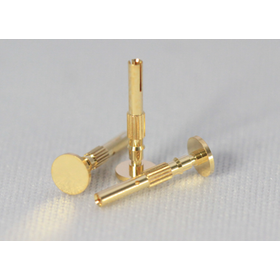Confirming the safety of recycled materials made from discarded items!
The Tokai Technical Center, a general incorporated foundation, conducts "recycling material tests" on recycled subbase materials, recycled roadbed materials, and improved soil from construction sludge. Recycling materials are products regenerated from discarded items such as construction by-products and sewage contamination, and their use is being promoted mainly in the construction sector for public works. Since these materials are made from recycled resources, it is necessary to confirm their safety for the environment. 【Main Test Items (Partial)】 ■ Recycled Subbase Material - Aggregate sieving test ■ Recycled Roadbed Material - Design CBR test ■ Improved Soil from Construction Sludge - Engineering classification of ground materials *For more details, please refer to the PDF document or feel free to contact us.
Inquire About This Product
basic information
【Others, Various Tests (Partial)】 ■ Strength Tests for Concrete and Metal Materials ・ Compressive Test for Concrete ・ Tensile Test for Reinforcing Steel ■ Physical Tests and Chemical Analysis of Concrete Materials ・ Alkali-Silica Reactivity Test (Chemical Method) ・ Sieve Analysis Test ・ Water Immersion Expansion Test ■ Deterioration Diagnosis Tests for Structures ・ Carbonation Test * For more details, please refer to the PDF document or feel free to contact us.
Price range
Delivery Time
Applications/Examples of results
For more details, please refer to the PDF document or feel free to contact us.
catalog(1)
Download All CatalogsCompany information
The Tokai Technical Center (TTC), a general incorporated foundation, was established in 1971 as a measurement and analysis institution for the prevention of industrial pollution. Currently, it provides services in three main areas: "Environmental surveys and measurements" "Chemical analysis and quality testing of industrial products and materials" "Quality testing of civil engineering and construction materials" Centered in the Tokai region, including Aichi, Mie, and Gifu prefectures, particularly around Nagoya, it has grown as a core institution for environmental conservation and product quality management. In addition to contributing to the local community, it now receives inquiries from across the country and responds to customer consultations and requests.





![Material Testing: Testing Quality at the Forefront of the Aerospace Industry [Contract Inspection]](https://image.mono.ipros.com/public/product/image/316/2001078516/IPROS70253589299333825151.png?w=280&h=280)
![Material testing: Capable of meeting international standards [Contract testing]](https://image.mono.ipros.com/public/product/image/6af/2001078519/IPROS88255784301543613677.png?w=280&h=280)


![[Case Study] Drinking Water Quality Inspection: What Are the Water Issues and Their Causes in Newly Built Buildings?](https://image.mono.ipros.com/public/product/image/0cb/2000624974/IPROS35658843743759325597.jpeg?w=280&h=280)
![[Case] Equipment water quality inspection: The water quality is fine, but the cooling tower has stopped abnormally!](https://image.mono.ipros.com/public/product/image/41d/2000625360/IPROS73972615728347565286.jpeg?w=280&h=280)

![[Processing Example] Achieving high-precision processing and quality stabilization of catheter tips.](https://image.mono.ipros.com/public/product/image/144896/IPROS16433267616338975086.png?w=280&h=280)
